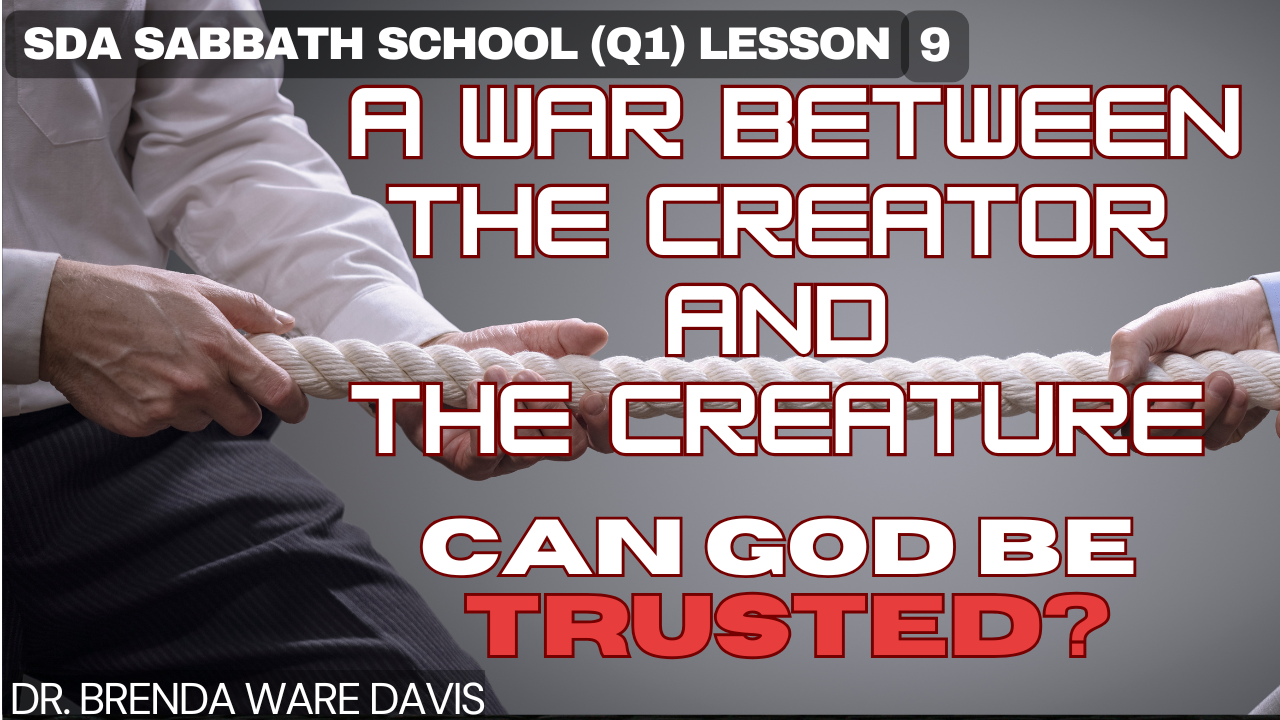SS23, Q1 MANAGING FOR THE MASTER (Lesson 6) Laying Up Treasure In Heaven Day 5-6: Moses in Egypt
FUTURE REWARD: To defer immediate gratification for a future reward requires radical thinking and radical changes.
Who would give up being Prince of Egypt to lead ungrateful ex-slaves wandering in the wilderness for 40 years? Moses did!
In the Bible, God has provides us with practical guidance on how to live above the stresses of life, and we are given instructions on how to manage the resources He has given us.
In this series,
From a biblical perspective, we are looking at how to manage effectively the resources God has given us while prioritizing What Really Matters.
Review any of our previous lessons @ SabbathSchoolDaily.com.
Also, you can obtain the study guide to these lessons @ Sabbath.School or ssnet.org
Let’s Pray
Holy Father, transform our hearts and minds so that we may not be deceived and enticed by the things that are seen.
For the things that we see or temporary, but the things that we cannot see are eternal.
Put within our hearts the desire for that which is eternal. In Jesus’ Name, Amen
Moses is a very important person whose character dominated early biblical history.
Moses’ parents were Hebrew slaves in Egypt.
Around the time Moses was born, in Egypt, Pharoah, the king of Egypt, made a law to kill all the baby boys born to Hebrew slaves.
But God intervened in Moses’ behalf. His mother and his sister devised a plan to protect him from being killed by putting him in a small boat that floated down the Nile river while his sister on the sideline keep watch over him.
Pharaoh’s daughter found Moses in the Nile River sleeping in the little boat made by his mother.
She fell in love with him and decided to raise him as our own son.
Moses’ sister Miriam, who had kept watch over him as he floated down the Nile, offered to go get a Hebrew slave to care for him.
Of course, she came back with her mother, Jochebed.
Not knowing that the Hebrew slave was Moses’ mother, Pharoah’s daughter paid Moses’ mother to take care of him.
What a blessing from God! He made provisions for the mother of Moses to take care of her son.
Pharaoh’s daughter allowed Jochebed to keep Moses for 12 years.
During that time, Jochebed taught her son to pray, to have faith, and to love and honor God.
And she worked at developing his character for a life of service to God and helping others.
After his mother’s training, Moses went to live in the palace with his adopted mother, Pharaoh’s daughter.
There, for years, Moses was trained in the royal courts of Egypt.
His learning in the courts of Egypt prepped him to become the next king of Egypt.
In that regard, Acts 7:22 tells us that
22 And Moses was learned in all the wisdom of the Egyptians, and was mighty in words and deeds. (Acts 7:22, NKJV).
However, as Moses matured and developed and grew to manhood, he made a conscious decision and made a radical change in his life that affected the course of biblical history.
Paul in Hebrews 11:24– 29 tells us about this radical change in which, rather than obtain instant gratification, Moses chose to delay his response for a greater future reward.
What did Moses give up when he made his decision?
And what did he choose when he left Egypt?
Hebrews 11:24-29 tells us:
24 By faith Moses, when he became of age, refused to be called the son of Pharaoh’s daughter,
25 choosing rather to suffer affliction with the people of God than to enjoy the passing pleasures of sin,
26 esteeming the reproach of Christ greater riches than the treasures in Egypt; for he looked to the reward.
27 By faith he forsook Egypt, not fearing the wrath of the king; for he endured as seeing Him who is invisible.
28 By faith he kept the Passover and the sprinkling of blood, lest he who destroyed the firstborn should touch them.
29 By faith they passed through the Red Sea as by dry land, whereas the Egyptians, attempting to do so, were drowned. (Hebrews 11:24-29)
Moses chose delayed gratification.
Remember, delayed gratification is the act of resisting the impulse to take an immediately available reward with the hope of obtaining a more-valued reward in the future.
Egypt was one of, if not the richest and most powerful countries in the ancient world at the time that Moses lived.
As a matter of fact, the Nile River made Egypt the most fertile land for growing vegetation.
In other words, Egypt was a wealthy and powerful nation.
Moses had been chosen by Pharoah, his adopted grandfather, to become the King of Egypt.
He was chosen to be the highest man in the Kingdom.
For most, it would have been hard to pass by this opportunity.
Moses gave up the riches in Egypt to join a group of slaves.
Hebrews 11:25 tells us that Moses:
“rather to suffer affliction with the people of God than to enjoy the passing pleasures of sin” (Heb. 11:25, NKJV).
Talking about afflictions and hardship, Moses suffered many things because of his choice.
The book of Exodus tells us all about the troubles and hard times that Moses went through.
And because of a crucial mistake that he made while leading these ex-slaves to Canaan, the Land God had promised, Moses was not allowed to enter with the Hebrews according to Numbers 20:12.
12 Then the Lord spoke to Moses and Aaron, “Because you did not believe Me, to hallow Me in the eyes of the children of Israel, therefore you shall not bring this assembly into the land which I have given them.” (Numbers 20:12).
Similar to Moses, our counsel here is this:
“The work is before you. You are to improve the remainder of your life in reforming and elevating your character. A new life begins in the renewed soul. Christ is the our ever present, Saviour. That which may be regarded as hard to give up must be surrendered.
The overbearing, dictatorial word must be left unspoken; then a precious victory will be gained. True happiness will be the result of every self-denial, every denial of self.
As one victory is won, the next is more easily gained. Had Moses neglected the opportunities and privileges granted him of God, he would have neglected the light from heaven and he would have been a disappointed, miserable man. . . . We have light and opportunities, and if we will improve them, we may overcome. You may show then by your life the power of the grace of God in overcoming”.—Testimonies for the Church, vol. 4, p. 345.
Some might say that Moses should have stayed in Egypt.
But, despite Moses’ hardships with the Israelites as they traveled in the wilderness to the land God had promised them, in the end, Moses made the right choice.
He chose the best Kingdom, the heavenly Canaan, God’s Kingdom. (Split)
There we will be able to spend eternity enjoying what God has promised in that better land called heaven.
Don’t you want to live in that better land, then make that radical change, surrender your heart to Jesus, and defer those immediate selfish gratifications so that you can obtain a greater future reward?
If you wish to return tithe or give an offering, consider giving online,
@ Adventistgiving.org
my local Church:
Hebron Seventh-day Adventist Church 7902 Wheatly Street Houston, TX 77088
Watch Past and Present Lessons @ SabbathSchoolDaily.com














Post Comment